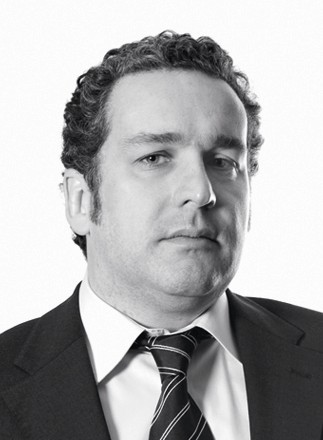32nd Annual Conference on
Artificial Intelligence
Paderborn | September 15 – 18, 2009
Invited Talks
K1: Gordon Cheng - Realising Artificial Physical Intelligent Systems
Gordon Cheng, ATR Kyoto, Japan
The abilities of any cognitive systems impinge significantly on the integration of great number of intricate components, which predominately ascertain its abilities in dealing with the world. In this talk, I shall present a number of integrated cognitive systems, namely, Humanoid Cognitive Systems, which have been core of my research focuses over the past 10 years. Their abilities to precept, acts, learn and adapt to the world at large will be elucidated. If time permits, I shall extend my talk to include some of my more recent work on interfacing cognitive systems and their application.
Presenter
Gordon CHENG is CoTeSys Professor. Dr. Cheng received the Bachelor's and Master's degrees in computer science from the University of Wollongong, N.S.W., Australia, and the Ph.D. degree in systems engineering from the Department of Systems Engineering, Australian National University, A.C.T., Australia.
He holds visiting professorships around the world (Germany, France, USA, Brazil). He was the Founder and Director of G.T.i. Computing Pty Ltd, Australia, where he engaged in networking/transport management systems (1995-2006). He has also been a consultant and a National Systems Manager for a major transport company (1994-1996). He was Founder and Head of the Department of Humanoid Robotics and Computational Neuroscience (2003-2008), Advanced Telecommunications Research Institute International (ATR), Kyoto, Japan. He was the Group Leader for Japan Science and Technology Agency (JST/ICORP), Computational Brain Project (2004-2008), Japan. He has also been designated as a Project Leader/Research Expert for National Institute of Information and Communications Technology (NICT) of Japan. He has held fellowships major research organizations in Japan, Center of Excellence (COE) Fellow, Science, and Technology Agency (STA) Fellow.
He is the co-inventor of approx 15 patents and the author of approx 170 technical publications, proceedings, editorials and books. His current research interests include humanoid robotics, cognitive systems, biomimetic of human vision, computational neuroscience of vision, action understanding, human-robot interaction, active vision, mobile robot navigation, and object-oriented software construction.
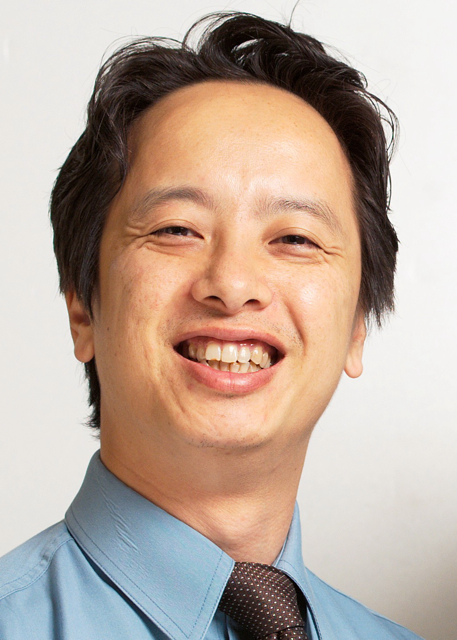
K2: Dana S. Nau - How Do You Plan if There Are Other Agents and You Don't Know their Plans?
Dana S. Nau, University of Maryland
AI planning research has traditionally assumed a single-agent environment---but planning is much more difficult in the presence of other agents, especially if they aren't under our control. Professor Nau will provide a classification of multi-agent planning problems, and will discuss algorithms for these problems, ways to predict other agents' behavior and update these predictions during plan execution, and ways to alleviate combinatorial explosion. Examples will include several well-known multi-agent planning problems and non-zero-sum.
Presenter
Dana Nau is a Professor of Computer Science and Systems Research at the University of Maryland, and is co-director of the university's Laboratory for Computational Cultural Dynamics. He has more than 300 publications on automated planning, search algorithms, game theory, social modeling, and automated manufacturing. Some of his accomplishments include the SHOP2 planning system, contributions to the Bridge Baron bridge player, the discovery of game-tree pathology, and the book Automated Planning: Theory and Practice. He is a Fellow of the Association for the Advancement of Artificial Intelligence (AAAI).
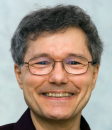
Department of Computer Science, and Institute for Systems Research
University of Maryland, College Park, MD 20742
phone: 301-405-2684 fax: 301-405-6707 www.cs.umd.edu/~nau
K3: Han La Poutré - Logistic Agents and Market-based Allocation: Transportation, Health Care, and Power Grids
Han La Poutré, Centrum Wiskunde & Informatica, Amsterdam
In many logistic problems, multiple parties are involved. One can think of multi-modal transportation, cargo allocation, patient scheduling with multiple medical departments, and balancing supply and demand in future power grids with many green suppliers. The logistics of efficient planning in these areas therefore essentially is a multi-party process, with various stakeholders. Such stakeholders can often be represented as non-cooperative agents, that have to coordinate for specific actions.
In the presentation, we describe fundamental as well as applied results for agents coordinating in such problem areas. The techniques that are used vary from market mechanisms and negotiation to adaptive agent strategies, learning, and agent-based simulation.
Presenter
Han La Poutré is research group leader at CWI (the Netherlands Research Institute for Mathematics and Computer Science, Amsterdam) and a full professor at Eindhoven University of Technology. He received his Ph.D. degree in 1991 from Utrecht University. His research concerns non-cooperative agent systems, computational intelligence, and multi-agent games, especially for logistic problems.
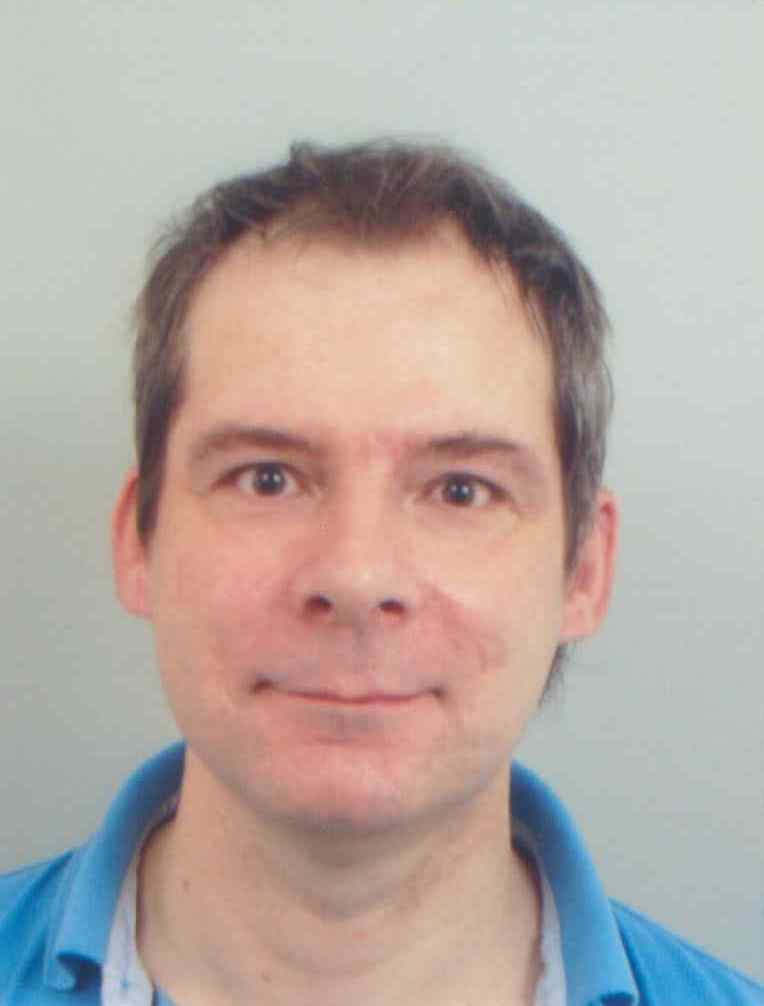
K4: Wolfgang Wahlster - Semantic Product Memories: Digital Lifelogs for Smart Products
Wolfgang Wahlster, DFKI and Saarland University
A semantic product memory stores a diary of an individual physical object in a persistent way on an embedded sensor system that is networked by wireless communication to a smart environment. In this talk, we present the layered architecture together with the representation and inference formalisms used in our SemProM project. SemProM goes well beyond traditional RFID technology and is the basis for intelligent automation in smart factories, event-driven logistics as well as smart retail and after-sales. Collecting information logs about objects in such smart environments and making it available - for example about an object’s origin, location, movements, physical properties, environmental conditions, usage history, and context - can help enterprises to improve their business processes and create new ones. Existing business processes become more accurate since information taken directly from the point of action can be used to manage or adapt processes in real time for the emerging Internet of Things. We show how such embedded “black box” event recorders can transform everyday objects like cars, circuit boards, pizzas and drug blister packs into smart products. We show how consumers of smart products can access their lifelogs by NFC-enabled smartphones using SemProM’s browser and track the complete history of a product.
Presenter
Wolfgang Wahlster is the Director and CEO of the German Research Center for Artificial Intelligence (DFKI) and a Professor of Computer Science at Saarland University. He is an AAAI Fellow, an ECCAI Fellow, and a GI Fellow. In 2001, the President of the Federal Republic of Germany, presented the German Future Prize to Professor Wahlster for his work on intelligent user interfaces. He was the first computer scientist to receive Germany's highest scientific prize. In 2002, he was the second German computer scientist elected Full Member of the German Academy of Sciences and Literature, Mainz. He was the first German computer scientist elected Foreign Member of the Royal Swedish Noble Prize Academy of Sciences, Stockholm 2003. In 2004, he was elected Full Member of the German National Academy of Sciences Leopoldina, that was founded in 1652, and of acatech, the German Academy of Science and Engineering. In 2008, he was elected Full Member of the Berlin-Brandenburg Academy of Sciences and Humanities, which was founded by Gottfried Wilhelm Leibniz in 1700. His current research includes multimodal and tangible user interfaces, instrumented environments, and the semantic web of things.
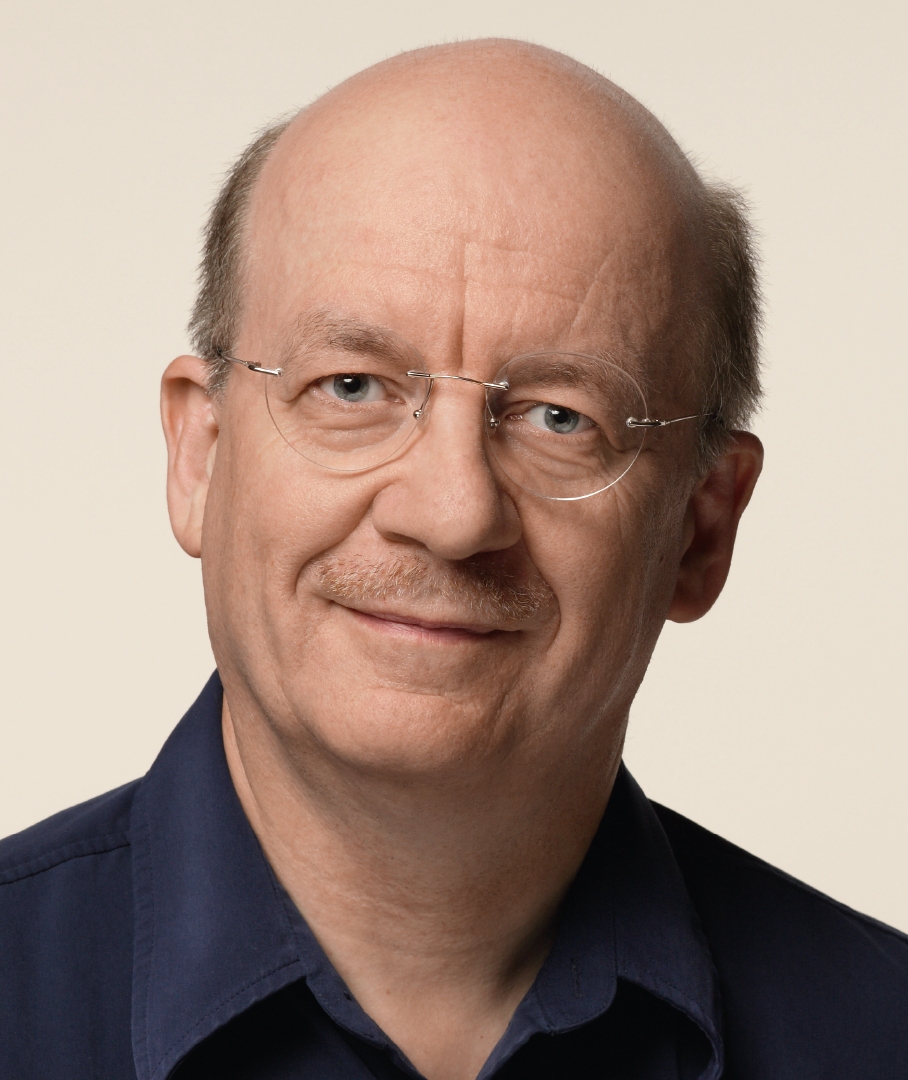
K5: Frank van Harmelen - Large Scale Reasoning on the Semantic Web: what to do when success is becoming a problem
Frank van Harmelen, Vrije Universiteit Amsterdam
In recent years, the Semantic Web has seen rapid growth in size (many billions of facts and rules are now available) and increasing adoption in many sectors (government, publishing industry, media). This success has brought with it a whole new set of problems: storage, querying and reasoning with billions of facts and rules that are distributed across different locations. The Large Knowledge Collider (LarKC) is providing an infrastructure to solve such problems. LarKC exploits parallelisation, distribution and approximation to enable Semantic Web reasoning at arbitrary scale. In this presentation we will describe the architecture and implementation of the Large Knowledge Collider, we will give data on its current performance, and we will describe a number of use-cases that are deploying LarKC.
Presenter
Frank van Harmelen (1960) is a professor in Knowledge Representation & Reasoning in the AI department (Faculty of Science) at the Vrije Universiteit Amsterdam, with a PhD from the Department of AI in Edinburgh. He was appointed full professor in 2002, and is leading the Knowledge Representation and Reasoning Group. He co-lead the On-To-Knowledge project, one of the first Semantic Web projects in 1999. He was one of the co-designers of the OWL Web Ontology Language Language. He is currently scientific director the LarKC project (http://www.larkc.eu), aiming to develop the Large Knowledge Collider, a platform for very large scale semantic web reasoning. His current interests include the Semantic Web, approximate reasoning and medical knowledge representation.
He has published a number of books among which are the first and most widely used text book on the Semantic Web, and the reference work The Handbook of Knowledge Representation.
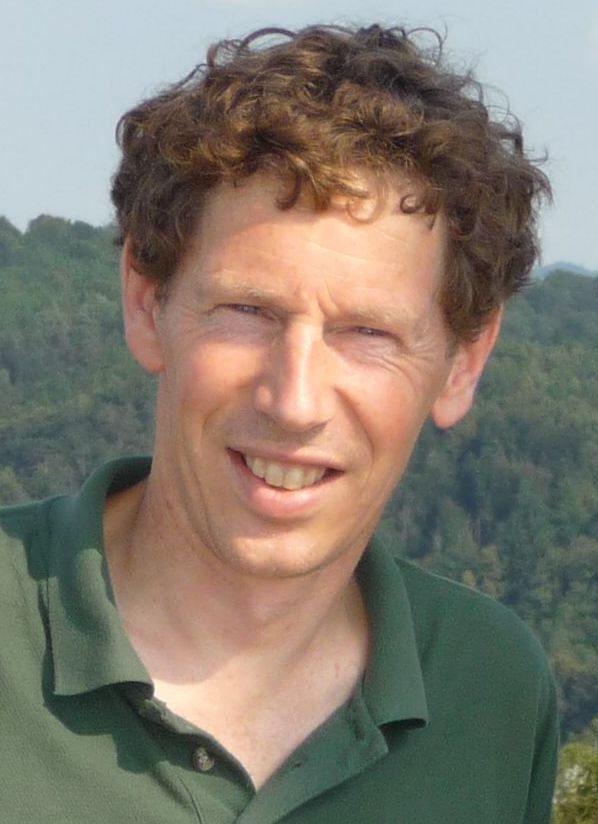
Frank.van.Harmelen@cs.vu.nl www.cs.vu.nl/~frankh
Department of AI, Faculty of Sciences, Vrije Universiteit Amsterdam
de Boelelaan 1081a, 1081HV Amsterdam, The Netherlands
tel (+31)-20-598 7731/7483 fax (+31)-84-221 4294
K6: Klaus Mainzer - From Symbolic AI to Embodied AI: History and Foundations of Artificial Intelligence
Klaus Mainzer, Technical University of Munich
After remarks on historical and philosophical roots on AI, we consider foundations and limitations of classical Symbolic AI. Embodied AI is inspired by the natural evolution of embodied organisms with brains and minds of increasing complexity. Embodied robotics aims at the technical development of cognitive robots. Systems biology, brain research, cognitive science, AI and robotics seem to grow together in common clusters of research and innovation. They open new avenues of understanding the natural and technical evolution of intelligent systems.
Presenter
Klaus Mainzer is professor for Philosophy of Science and director of the Carl von Linde Academy at the Technical University of Munich (TUM). He is member of the advisory board of the Institute for Advanced Study (TUM) and international academies (e.g., European Academy of Science/Academia Europaea in London). After studies in mathematics, physics, and philosophy, he was professor at the universities of Constance and Augsburg (director of the Institute of Interdisciplinary Informatics). At TUM, he is engaged in the excellence cluster CoTeSys (Cognition in Technical Systems). His main topics of research are complex dynamical systems, philosophy of AI and computer science. He is author of several books on, e.g., “Komplexität” (2008), “Thinking in Complexity” (5th edition 2007), „Symmetry and Complexity“ (2005), “KI - Künstliche Intelligenz. Grundlagen intelligenter Systeme” (2003), “Computerphilosophie” (2003), “Computernetze und virtuelle Realität. Leben in der Wissensgesellschaft” (1999), „Gehirn, Computer, Komplexität“ (1997), „Computer – Neue Flügel des Geistes?“ (1994).
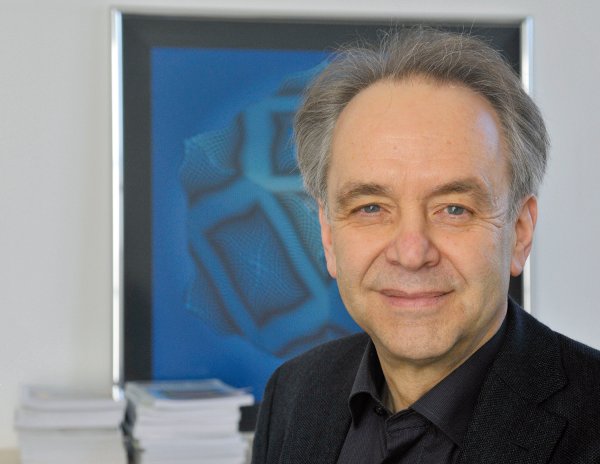
K7: Tobias Scheffer - Playing Classification Games with Spammers, Viruses, and Zombies
Tobias Scheffer, University of Potsdam
Most machine learning procedures require training data to be available that reflect the distribution which the resulting model will later be exposed to. Some of the most inspiring machine learning problems, however, do not meet these requirements. In computer security, adversaries design their futures attacks such that any patterns that have occurred in past attacks and might
therefore give away a new attack are deliberately avoided. Hence, detecting spam emails, phishing attacks, and zombie networks is a game between adversaries rather than a standard classification problem. Game theory allows to study whether such games possess a unique Nash equilibrium. New results lead to a Nash classifier that detects spam, phishing and virus
attacks robustly for a long time.
Presenter
Tobias Scheffer is a professor of computer science at the University of Potsdam, Germany. His research focuses on machine learning, and on application-driven problems that machine learning can help solving. Prior to joining Potsdam University, he was an associate research professor at the Max Planck Institute of Computer Science and assistant professor at Humboldt-UniversitÀt zu Berlin. He received a Google Research Award, an Emmy Noether Fellowship of the German Science Foundation, and an Ernst von Siemens Fellowship. He graduated in 1999 from Technische Universitaet Berlin.

K8: Franz Baader - Small is Again Beautiful in Description Logics
Franz Baader, TU Dresden
The Description Logic (DL) research of the last 20 years was mainly concerned with increasing the expressive power of the employed description language without losing the ability of implementing highly-optimized reasoning systems that behave well in practice,
in spite of the ever increasing worst-case complexity of the underlying inference problems. OWL DL, the standard ontology language for the Semantic Web, is based on such an expressive DL for which reasoning is highly intractable. Its sublanguage OWL Lite was intended to provide a
tractable version of OWL, but turned out to be only of a slightly lower worst-case complexity than OWL DL. This and other reasons have led to the development of two new families of light-weight DLs, EL and DL-Lite, which recently have been proposed as profiles of OWL 2, the next version of the OWL standard. In this talk, we give an introduction to these new families logics and explain the rationales underlying their design.
Presenter
Franz Baader is full professor for Theoretical Computer Science at TU Dresden, Germany. He has obtained his PhD in Computer Science at the University of Erlangen, Germany. He was senior researcher at the German Research Institute for Artificial Intelligence (DFKI) for four years, and associate professor at RWTH Aachen for eight years. His main research area is Logic in Computer Science, in particular knowledge representation (description logics, modal
logics, nonmonotonic logics) and automated deduction (term rewriting, unification theory, combination of decision procedures).
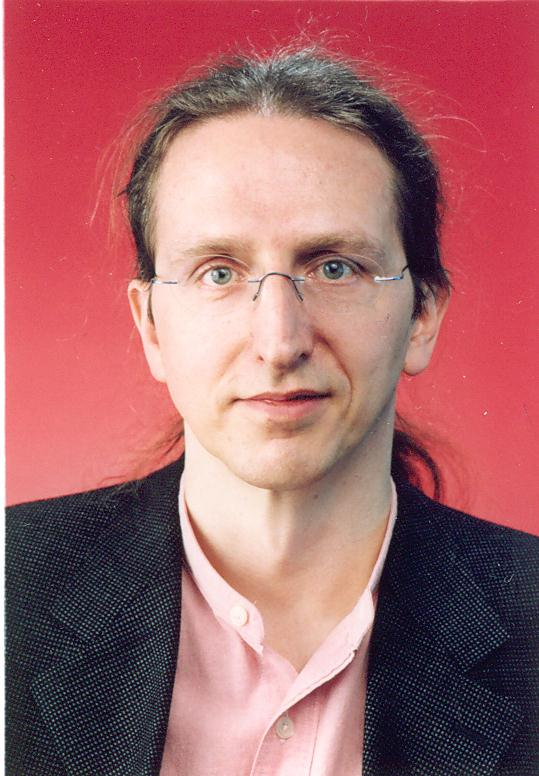
K9: Ulrich Reimer - The Role of AI in Knowledge Management
Ulrich Reimer, University of Applied Science St.Gallen
The talk begins with a short introduction into what knowledge management (KM) is and how it is related to AI. Subsequently, three AI approaches to KM are discussed in more detail: the now mostly abandoned idea of an organizational (or corporate) memory, the increasingly popular ontology-based approach to KM, and a model-driven, application-specific approach which reintroduces the distinction between knowledge (or model) and shell (or reference architecture) from the early days of expert systems. The presentation concludes with a summary of challenges and opportunities for AI techniques in KM.
Presenter
Ulrich Reimer since 2005 is the head of Research and Knowledge Transfer at the Institute for Information and Process Management, University of Applied Sciences, St. Gallen. He has obtained his PhD in text understanding and knowledge representation at the Information Science Department of the University of Konstanz. He was the head of IT Research & Development at Swiss Life in Zurich from 1991 to 2002. Then, he was a senior consultant for a small consultancy company for three years.

K10: Marc Erich Latoschik- Intelligent Virtual Environments - Convergences
Marc Erich Latoschik, University of Bayreuth
Intelligent Virtual Environments (IVEs) combine concepts, methods, and techniques from multiple fields of research. This includes 3D real-time graphics, Artificial Intelligence, Virtual Reality, or physical simulation and many others. Impressive results have been achieved which shed light on future alternatives and possibilities for novel man-machine interfaces. While all these results are markedly valuable for themselves, building IVEs becomes more and more cumbersome. Our expectations constantly rise. Simulation quality, freedom of movement, interaction diversity, and behavior intelligence - to name just a few - are constantly increasing to achieve the believability, immersion, and presence of IVEs. The technical evolution in this area is fast paced and nowadays largely driven by the entertainment industry which defines the state of the art in certain fields like visual quality and mass physics simulation etc. The current technological changes are far-reaching and even comprise the hardware layer, introducing widespread parallelization and specialization. Rising expectations and technical diversity increase complexity. Well-known software paradigms suddenly fail. In this talk we illustrate the state-of-the-art, identify the fundamental changes to cope with, and introduce some well-proven as well as some novel software design and development methods and paradigms to answer current and upcoming requirements of IVEs.
Presenter
Marc studied mathematics and computer sciences at the University of Paderborn, the New York Institute of Technology and the Bielefeld University. After several accompanying years in the computer business, he received his PhD in 2001 in the area of multimodal?gesture and speech?interaction for Virtual Reality. Marc headed the AI & VR Lab of the AI group at the Bielefeld University until 2007, became professor for media informatics at the University of Applied Sciences (HTW) in Berlin before he started the Intelligent Graphics Group of Bayreuth University in 2009. His work is interdisciplinary oriented towards human-computer interaction interconnecting real-time 3D graphics and simulation, virtual and augmented environments, Artificial Intelligence, and cognitive sciences.
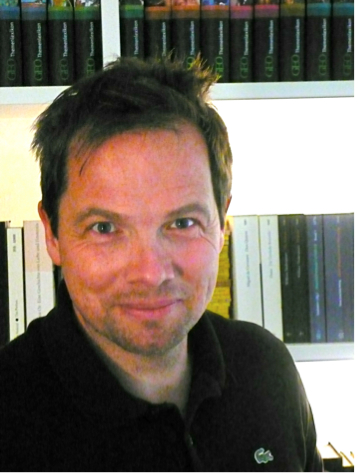
K11: Oliver Brock - Autonomous Mobile Manipulation - Linking Robotics and AI?
Oliver Brock, Technische Universität Berlin
Roboticists have become increasingly interested in deploying autonomous robots in unstructured, everyday environments to perform complex manipulation tasks. The buzzwords are mobile manipulation and cognition, the latter clearly related to artificial intelligence. But in spite of many efforts in the robotics research community, I believe there has been only slow progress towards this goal. In this presentation, I will discuss why I believe this is the case and why the robotics and AI communities should move closer together again to accelerate this progress. I will also present some of our work in mobile manipulation, hopefully supporting this view.
Presenter
Oliver Brock is a Professor in the School of Electrical Engineering and Computer Science at the Technische Universität Berlin in Germany. He received his Diploma in Computer Science from the Technische Universität Berlin and his Master?s and Ph.D. in Computer Science from Stanford University. He also held post-doc positions at Rice University and Stanford University. He was an Assistant Professor and Associate Professor in the Department of Computer Science at the University of Massachusetts Amherst, prior to moving back to Berlin. The research of Brock's lab, the Robotics and Biology Laboratory, focuses on autonomous mobile manipulation and the application of algorithms and concepts from robotics to problems in structural molecular biology.
